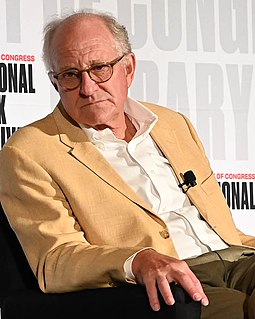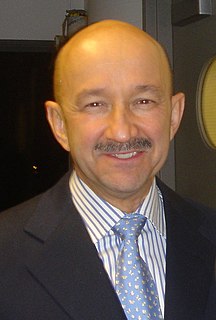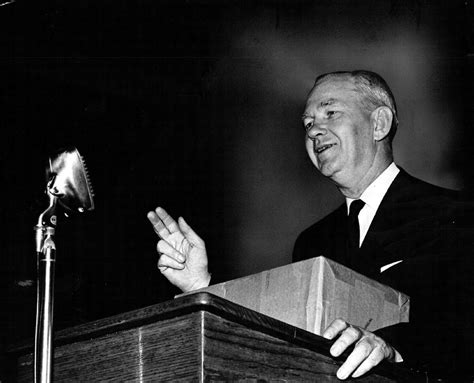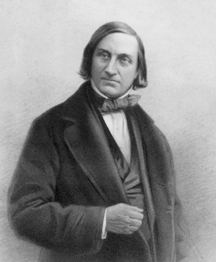Top 54 Centralization Quotes & Sayings
Explore popular Centralization quotes.
Last updated on April 14, 2025.
The rise of the presidency began with the Louisiana Purchase, which in 1803 doubled the land mass of the United States. History taught the framers that, just as Rome changed from republic to empire with conquest of new lands, territorial acquisition would lead to the centralization of political power.
It is possible in theory and I think true in practice that centralization could have been the optimal solution at the beginning of the computer era and now, but not in between. And it may change back again with some other technological development. Some things move in a straight line. Others move like a pendulum.
What I am asserting is that in this particular epoch a conjunction of historical circumstances has led to the rise of an elite of power; that the men of the circles composing this elite, severally and collectively, now make such key decisions as are made; and that, given the enlargement and the centralization of the means of power now available, the decisions that they make and fail to make carry more consequences for more people than has ever been the case in the world history of mankind
Despite the campaign rhetoric, the bureaucracies-big business and big government-are here to stay. The centralization effort cannot be checked. but it can be rationally directed towards our species goal: Space Migration, which in turn offers the only way to re-attain individual freedom of space-time and the small-group social structures which obviously best suit our nervous systems. It is another paradox of neuro-genetics that only in space habitats can humanity return to the village life and pastoral style for which we all long.
Seriously. It was running out at Rolling Stone. First of all, they didn't feel the need for a dissident conservative voice in a world where certain conservative aspects had become intellectually dominant. I would actually argue against that, but on the surface of it, in the [Bill] Clinton years the market economy triumphed, certain libertarian ideas became ordinary, and certain early-20th-century ideas about centralization of government and economic planning and socialism with a small "s" had obviously gone out the window. The Cold War was over, blah blah blah.
Are we going to continue to yield personal liberties and community autonomy to the steady inexplicable centralization all political power or restore the Republic to Constitutional direction, regain our personal liberties and reassume the individual state's primary responsibility and authority in the conduct of local affairs? Are we going to permit a continuing decline in public and private morality or re-establish high ethical standards as the means of regaining a diminishing faith in the integrity of our public and private institutions?
To complete the rout of traditionalists, in America an impression began to arise that the new industrial and acquisitive interests are the conservative interest, that conservatism is simply a political argument in defense of large accumulations of private property, that expansion, centralization, and accumulation are the tenets of conservatives. From this confusion, from the popular belief that Hamilton was the founder of American conservatism, the forces of tradition in the United States never have fully escaped.
To check centralization and usurping of power ... we require a new laissez-faire. The old laissez-faire was founded upon a misapprehension of human nature, an exultation of individuality (in private character often a virtue) to the condition of a political dogma, which destroyed the spirit of community and reduced men to so many equipollent atoms of humanity, without sense of brotherhood or purpose.
All the utopianism of the early days of the Internet seems to have dissipated. But I don't want us to lose that utopianism altogether, even if it was naïve and ill-informed and sometimes silly. Rather I want us to ask about the obstacles that are preventing the good stuff from coming to fruition. Let's investigate and think about creating something worthwhile instead of assuming that there is an inevitable track of increased centralization, consolidation, and commercialization that we can't do anything about.
We have got to accept Big Government for the duration-for neither an offensive nor a defensive war can be waged, given our present government skills, except through the instrument of a totalitarian bureaucracy within our shores. … And if they deem Soviet power a menace to our freedom (as I happen to), they will have to support large armies and air forces, atomic energy, central intelligence, war production boards, and the attendant centralization of power in Washington-even with Truman at the reins of it all.
The Second Wave Society is industrial and based on mass production, mass distribution, mass consumption, mass education, mass media, mass recreation, mass entertainment, and weapons of mass destruction. You combine those things with standardization, centralization, concentration, and synchronization, and you wind up with a style of organization we call bureaucracy.
What I'm nostalgic for is the idea of an edge in New York. There used to be these fringes of the city where civilization sort of ended, and therefore young people could live cheaply, or open nightclubs or art galleries, or even squat. That fringe moved out to New Jersey and Brooklyn. The whole idea of the metropolis is the centralization of like-minded souls, and when the central real estate becomes too expensive, the dreamers, the young poets, and the artists will go elsewhere.
Centralization of society's vital services in giant computer centers, reservoirs, nuclear power plants, air- traffic control centers, 100-story skyscrapers, and government compounds increases its vulnerability. ... choosing his targets, today's saboteur could pollute a city's water supply, dynamite power transmission towers, cripple an airport control center, destroy a corporate or government computer center.
But though Usury is in itself immoral, and justly condemned by every ethical code, its chief and worst defect in the particular case we are now examining, the growth of Capitalism and its increasing proletariat, is the centralization of irresponsible control over the lives of men: the putting power over the proletariat into the hands of a few who can direct the loans of currency and credit without which that proletariat could not be fed and clothed and maintained in work.
Being the governor of a state is a more pivotal job in the future. I do indeed hope there's someone that says, "I'm going to go to Washington, try to get back to our constitutional roots, devolve the centralization of government back to the states." So why would you want to be up there if the action is down here in the states?
If we generally like the way things are now, we must also ask whether our current situation is really so different from the open ages of radio, film, or the telephone. Might it not also have seemed in those times that the orgy of limitless entrepreneurism would never end? The point is that we are near the high end of a pendulum arc that, so far, has aways begun to swing in the opposite direction -toward greater integration and centralization- with a force that can seem inexorable.
We must move from ... the primacy of technology toward considerations of social justice and equity, from the dictates of organizational convenience toward the aspirations ofself realization and learning, from authoritarianism and dogmatism toward more participation, from uniformity and centralization toward diversity and pluralism, from the concept of work as hard and unavoidable, from life as nasty, brutish, and short toward work as purpose and self~fulfillment, a recognition of leisure as a valid activity in itself.
Enforced by genetics, sexual reproduction, perspective, and experience, the most manifest characteristic of human beings is their diversity. The freer an economy is, the more this human diversity of knowledge will be manifested. By contrast, political power originates in top-down processes-governments, monopolies, regulators, and elite institutions- all attempting to quell human diversity and impose order. Thus power always seeks centralization.
When we look at government in Washington or what's happening on Wall Street, we see so much centralization. But really, our goals should be to eliminate and overcome these central institutions. And in recent years we have gained powerful new tools to do this, and most significant among those is the block chain, which is the software behind Bitcoin.
The French need a thrashing. If the Prussians win, the centralization of state power will be useful for the centralization of the German working class. German predominance would also transfer the center of gravity of the workers' movement in Western Europe from France to Germany, and one has only to compare the movement in the two countries from 1866 until now to see that the German working class is superior to the French both theoretically and organizationally.
Palaeontological research exhibits, beyond question, the phenomenon of provinces in time, as well as provinces in space. Moreover, all our knowledge of organic remains teaches us, that species have a definite existence, and a centralization in geological time as well as in geographical space, and that no species is repeated in time.

















































